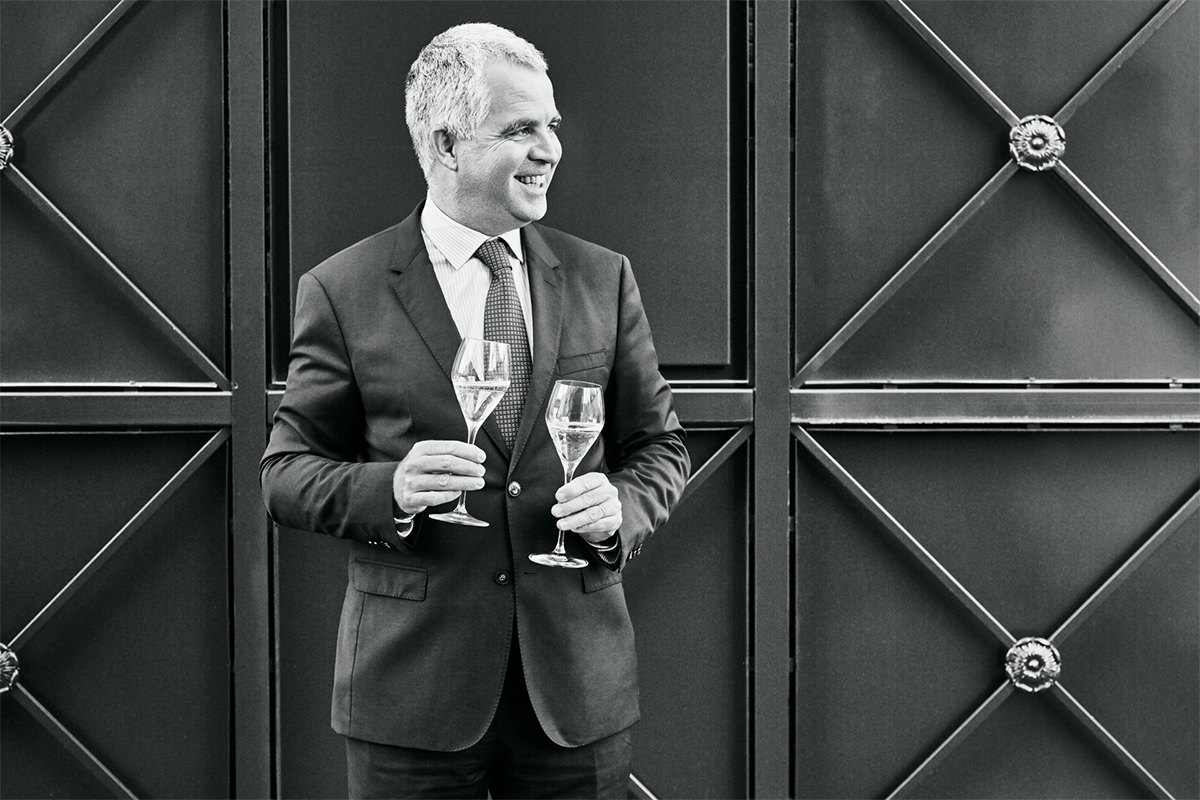
Olivier Krug. Image by Jenny Zarins
Olivier Krug, sixth generation director of the Krug champagne house, sits down for a tasting with a musical difference with LUX Editor-in-Chief Darius Sanai
Olivier Krug is smiling on a Zoom screen, standing behind a row of bottles in his office in Reims, Champagne. He has just been speaking about his family’s long-standing passion for music, which he has recently combined with the day job, making some of the world’s most celebrated champagnes at the eponymous Krug champagne house, in an initiative called Krug Echoes.
For Krug Echoes, the champagne house, now owned by luxury behemoth LVMH, has commissioned a series of musicians to create music to match its different, sublime champagnes.
Follow LUX on Instagram: luxthemagazine
Olivier says the idea was inspired by an executive at the company who went to a tasting of gourmet chocolate. Each different chocolate was accompanied by a different piece of music, and while they tasted very different, at the end it was revealed that the tasters had been eating the same chocolate each time: the music had triggered such different emotions that the participants’ perception of taste had altered for each.
The science of how emotion and mood, catalysed by music, affects taste is real but in its infancy: meanwhile Olivier Krug has stolen a march on it with the Krug Echoes initiative.
Below, Olivier explains his family’s long association with music; underneath which LUX Editor-in-Chief Darius Sanai, who tasted the champagnes and experienced the music over Zoom with Olivier Krug, gives his tasting notes.
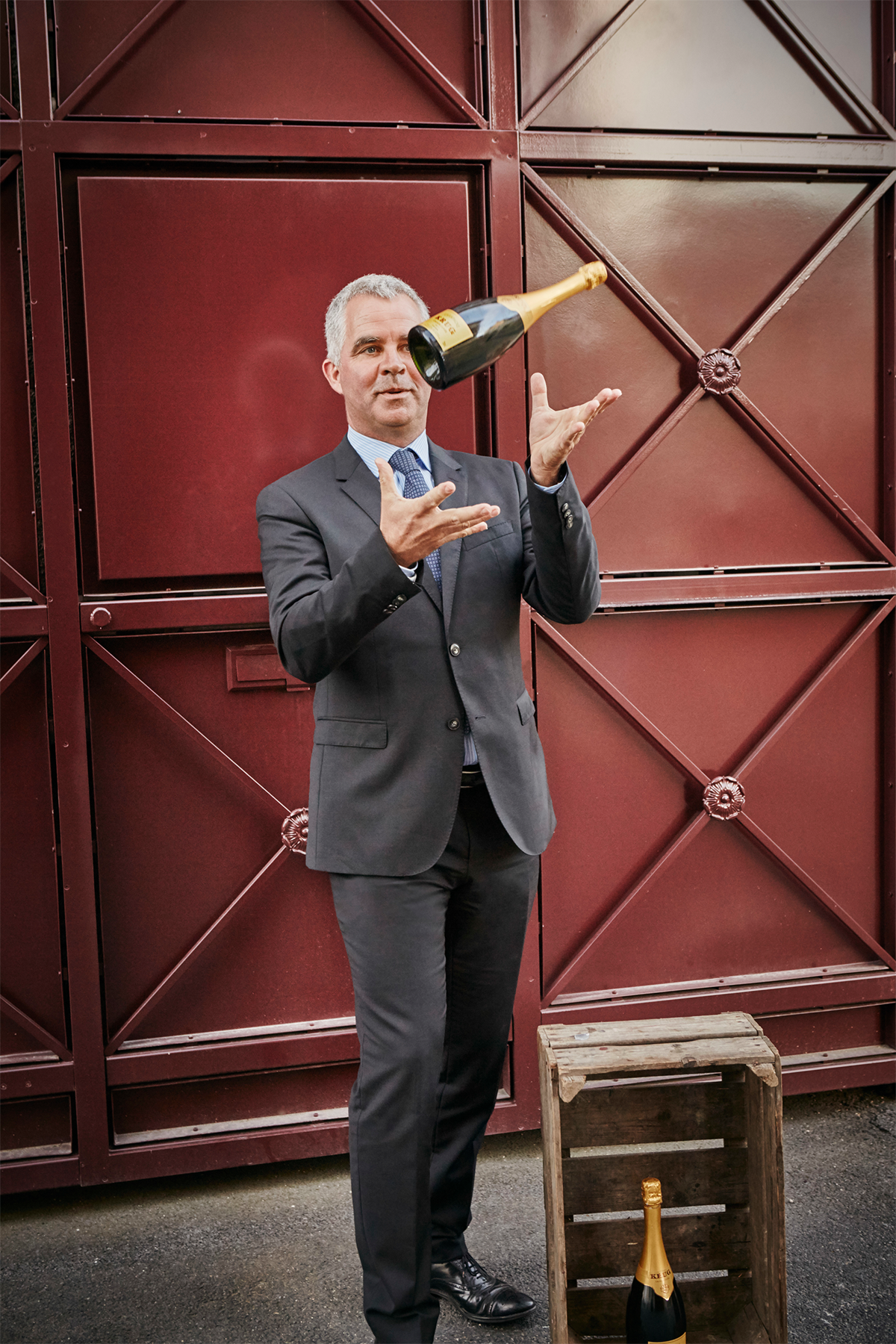
Image by Jenny Zarins
“When I joined Krug 30 years ago I sat in front my dad, and I was expecting to have the 9 AM legendary glass of Krug that people get when they join the company. I did get it, and then I was expecting my dad to start a very technical explanation of this job. He said, “You know, Olivier, my job is very similar to the role of a conductor.”
I said, “What conductor dad, are you playing music, or making champagne?”
He said, “I am creating champagne, but my job is very similar to the role of the conductor,” and I said “Why?” and he said, “My job, my mission, every year is to recreate a music that was invented by Joseph Krug, your great-great-great grandfather, in the 1840s. He wanted to create a type of champagne, and type of music, that did not exist. A champagne that would not rely on waiting for a good generation of musicians, but would offer the fullest music of champagne every single year.”
Read more: Parisian jewellers GOOSSENS opens its first London boutique
Great champagnes rely on great years, this is why most of the great champagnes have a vintage, there is a stamp on the label telling you: “This comes from 2002, therefore, it is good.” You know nothing about the story of 2002, but you trust it is the better champagne. But we do not have a good year every year, and so in other years you have to deal with a quality which is more uneven.
That was not satisfying at all for my great-great-great grandfather, who had already spent, as a young German immigrant, ten years in a big champagne house, and despite the fact he had a good job, despite the fact he was married to someone from the family, and despite the fact he was 42 years old (which was old in the 1840s), he decided to leave to create his dream: a champagne that would offer, every year, the fullest expression, the fullest music of champagne.
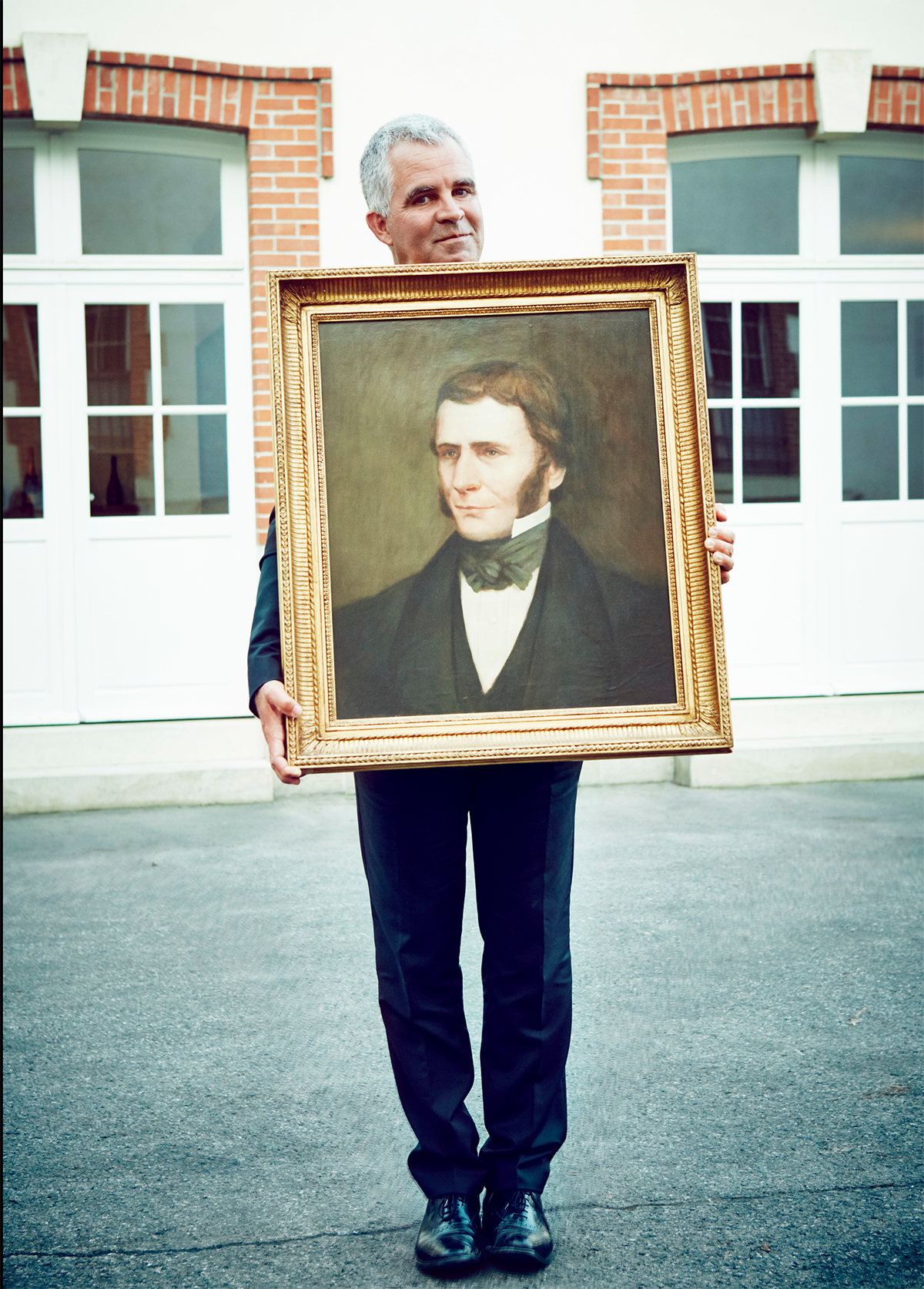
Olivier Krug with a portrait of his great-great-great grandfather Joseph Krug. Image by Jenny Zarins
So how can you do that? Of course, every year is different. You have good years and less good years. Sometimes, you have two or three good years in a row, and despite the fact they are good they don’t look the same at all. It’s the same as when you take the top 20 musicians of the five best music schools in the country; you will have a year when you have 18 violins, but the following year the generation of violinists will be very poor, and instead, you will have drummers and flautists.
But for me, as a conductor, I want to be in a position, every year, to sit in my orchestra and see all these instruments. I want them to be individually, if not the best, then the purest, the most intense character in their field. If I have to wait every year to have a good generation of musicians, I will have a year led by violin, and the next year will be led by other instruments and the following year will be forgotten, because no one is good enough alone on stage.
Read more: Tiqui Atencio on the value of collecting art
But if I could put myself in a position to put aside the extra musicians that I have, the year where they will not be offered to me, I will able to call them back, and ask them back into the orchestra. For example, the year where I have 18 violinists, I don’t need 18 violins in my orchestra, I only need six or eight or four so I will call the lead violin, and I will ask the other one to be a spare, and probably next year, I will call back one or two or three of them, and ask them to play in the orchestra, because the next year will not be about violins.
So every year, whatever the quality of the year, I will be in a position to find the musicians that I need to play everything. And the example of this is Krug Grande Cuvée, this is the music analogy that my dad made at the beginning.
Music has always been strongly present in my family. At the beginning of the 20th century, my great grandfather had a Salle Domestique, a room which was entirely dedicated to his friends or family members who were playing an instrument, and since that room is next to the cellar, I believe that the good people were deserving of a good glass of champagne at the end of the recital, or even before, who knows. We’ve always been very used to music.”
The Krug Echoes Tasting with Olivier Krug
Tasting notes by Darius Sanai
Krug Clos du Mesnil 2006
This is a blanc de blancs champagne (100% chardonnay) but it has as much in common with a common-or-garden blanc de blancs as a Dior couture gown has with a fast fashion frock. There are so many layers to this, like a gastronomic experience in a glass: it combines a streak of freshness with a deep cluster of honeyed buttered croissant and the aroma of cycling through Fontainebleau forest in October, with a drop of Sorrento lemon. It’s fashionable to liken complex Chardonnay-based champagnes to aged white Burgundy wine but this is something else entirely, even more complex.
I first had the Clos du Mesnil while sitting in the Clos du Mesnil smoking a Partagas D4 in the early 2000s and this is the perfect Havana cigar champagne; perhaps to be accompanied by some agnelotti al tartufo with a little taleggio. Mixing cultures, why not.
Krug Echoes music match Krug Clos du Mesnil 2006 by Ozark Henry – Meteor’s path
Krug 2006
Highly concentrated, tightly packed, layer on layer of flavours and richesse. The Krug house wasn’t (quite) around when Louis XIV had his audiences at Versailles but this is the kind of champagne I can imagine being served to the Sun King while he feasted on partridge, his audience watching on. Chamber music would work nicely, although the Krug Echoes choice is more original.
Krug Echoes music match: Krug 2006 by Kris Bowers
Krug Grande Cuvée 162ème Edition
Grande Cuvée is the orchestral composition Olivier was referring to in his fascinating musical history of the family. For me, if it were a symphony, it would be Beethoven’s Ninth, or perhaps a Mahler. It has drama, different levels of notes, and it is endless – in the best possible way. This is a champagne you keep tasting even after you have finished it. The Krug Echoes music choice is far more digestible than a Mahler symphony, of course.
Krug Echoes music match: Krug Grande Cuvée 162ème Edition by Ozark Henry
The champagnes for this tasting were provided to LUX by Krug: krug.com/playlist/krug-echoes

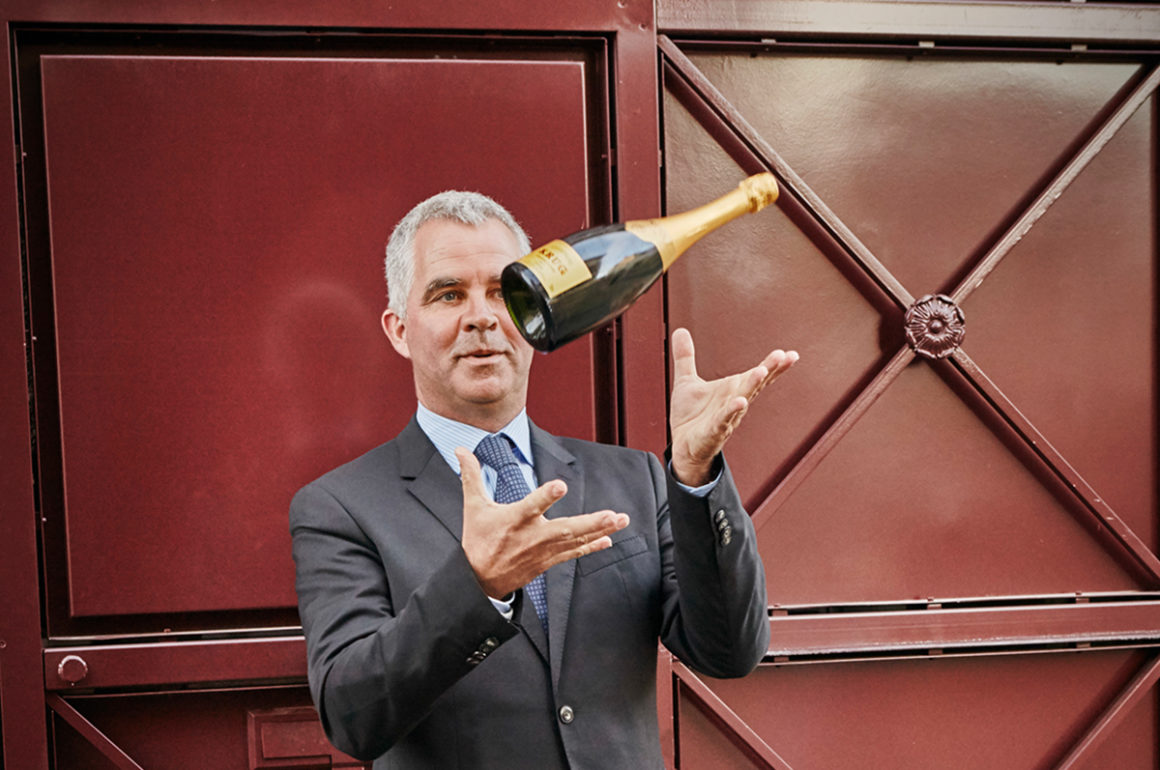
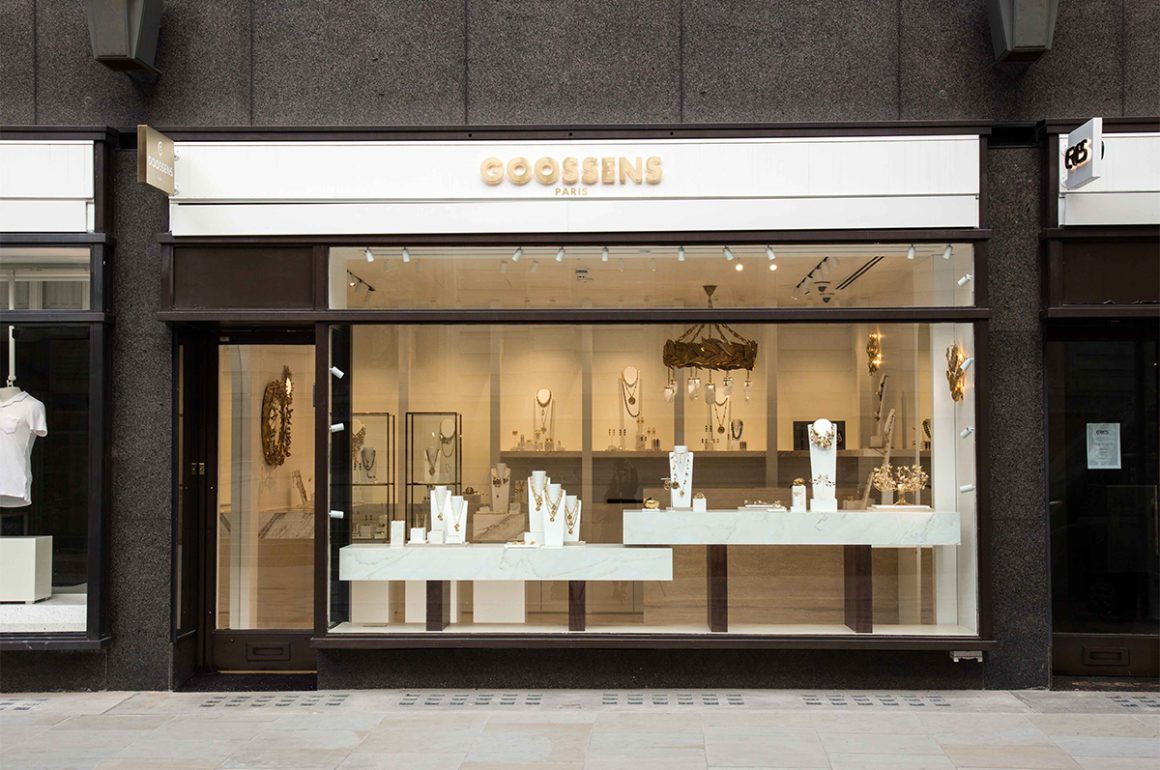
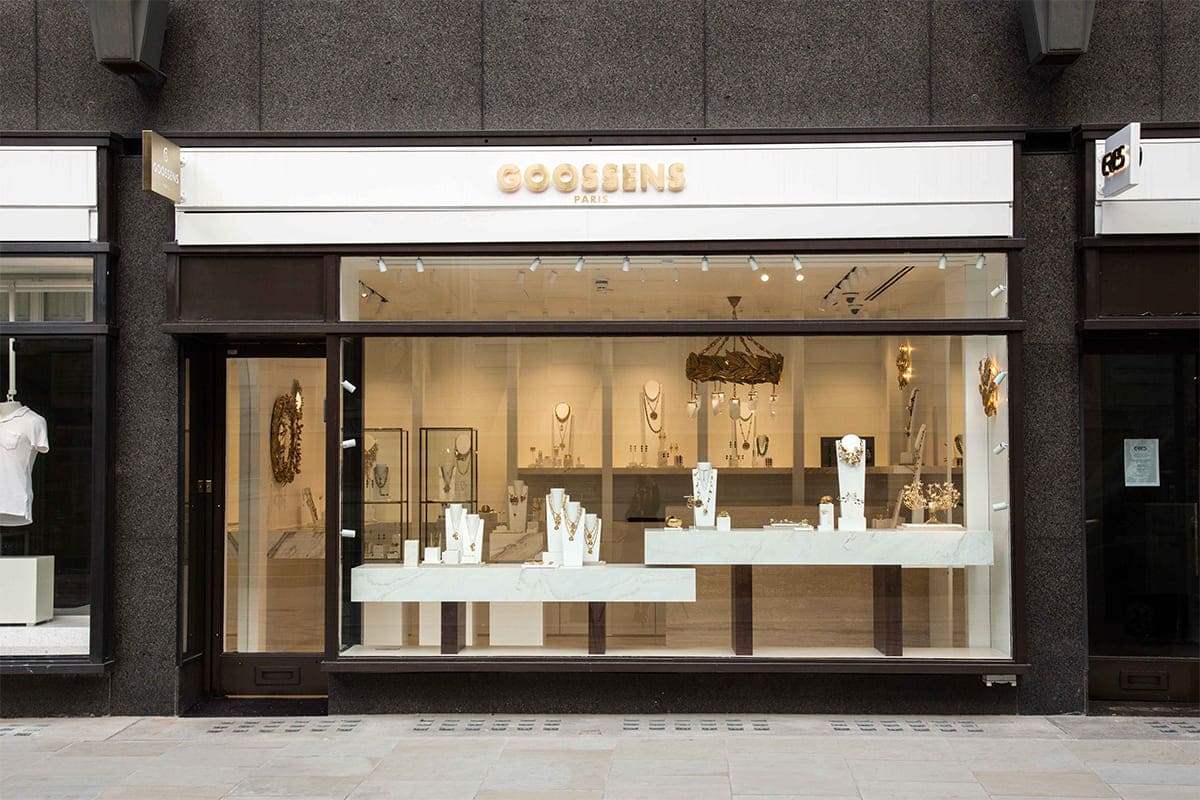
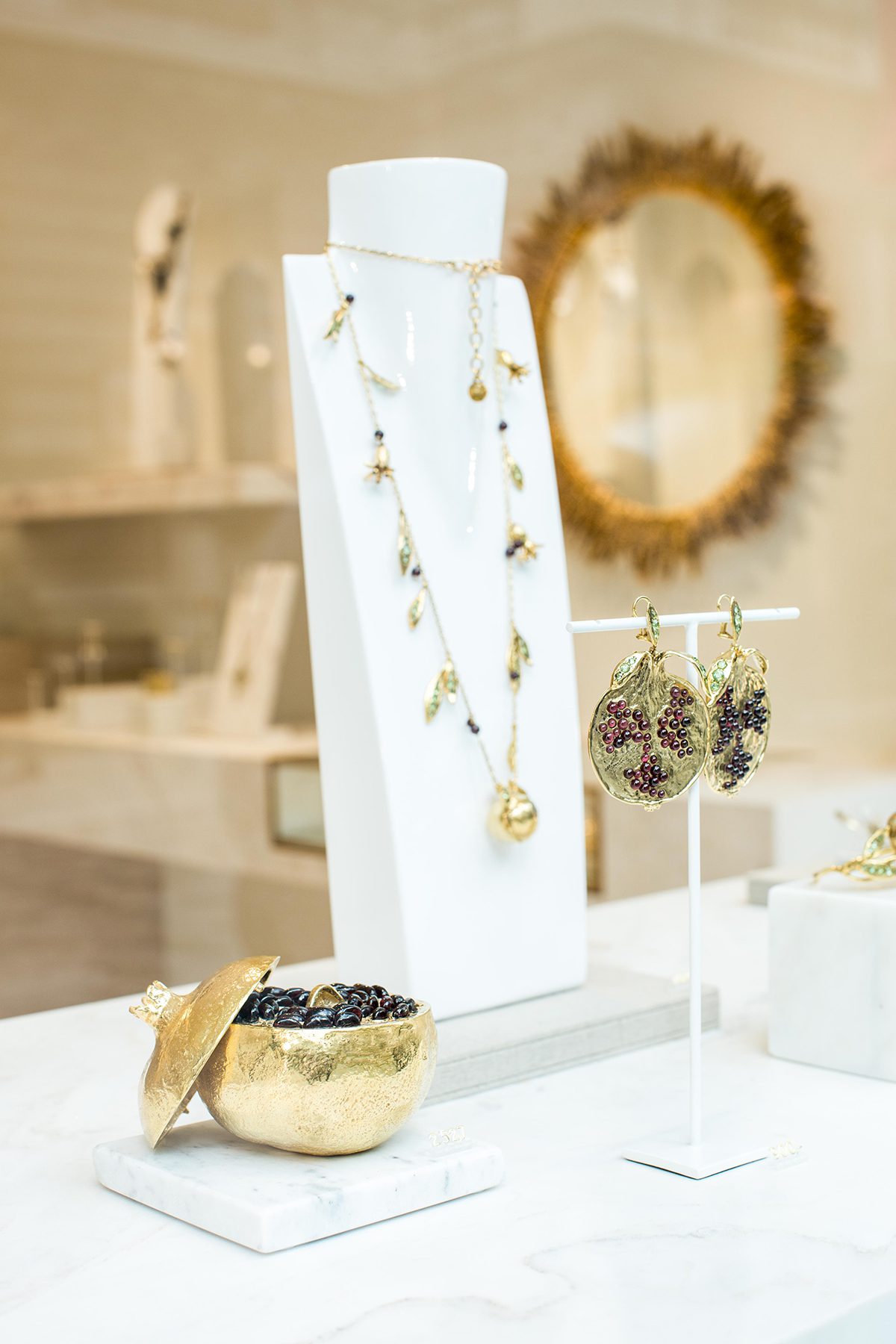





Recent Comments